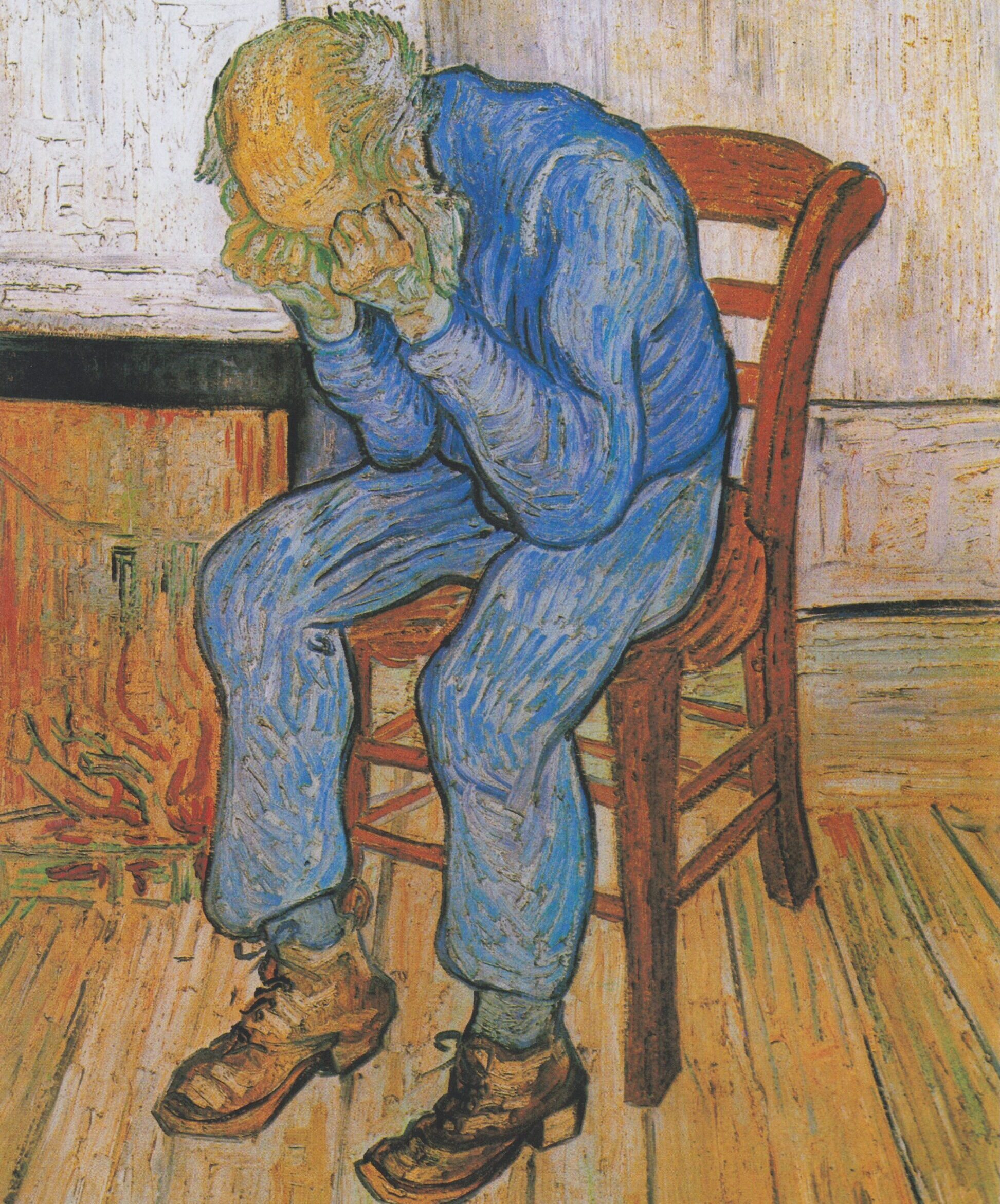Dream, Baby, Dream
The latest suicide statistics are a report from the void.

Per provisional numbers released Wednesday by the National Center for Health Statistics, the United States hit a suicide record in 2022: 14.3 suicides per 100,000, or nearly 50,000 total. Throw in overdose death numbers—105,000 and change—and a grim picture of last year emerges. (We’ll have to wait on the National Institutes of Health for alcohol-related death numbers, but the trend there isn’t good, either.)
These are the famous deaths of despair. Candidates all have to recognize them now—Trump on American carnage, Biden on suicides. Everyone’s stump speech or prepped debate monologue has a glib line about opioids or the mental health crisis or loneliness. Hillary Clinton, who has used the one thing in her life she has ever been denied to set herself up as a yogini for perimenopausal Sex and the City fans, is the Atlantic’s loneliness correspondent. The worst thing about loneliness, per the notorious election denier, is that it makes people think about voting for Donald Trump. It’s hard out there for America’s favorite Wellesley girl.
Hillary isn’t alone in her efforts to theorize and ameliorate loneliness. When you try to search on the title of this column and the name of the associated band on YouTube, you are assaulted with a screen asserting that you’re not alone and telling you to dial 988 on your telephone. Billboards touting 988 dot the highway from Baltimore to my little country town, between the notices that HEROIN STILL KILLS (this is a red county, after all) and DRIVING HIGH IS DANGEROUS (this is Maryland, after all). Of course, chances are that, if you’re calling 988, you are alone: literally alone, just you and your phone, which you’ll find is a piece of furniture, not a person. Also alone in the sense that the only person you have to call is someone paid to listen to lonely, desperate people—a 900 number for the dark night of the soul. And this is supposed to make you less likely to paint the basement wall with your brains.
Despite all the best efforts of Hilldog and the call center gang, things don’t seem to be getting better. Trump’s first inaugural, which was a national wake-up call for many, is nearly seven years past; people are still killing themselves.
And why not? Asking the Chinese to stop exporting poison to America requires a supreme act of diplomatic will; trying to stop it where it gets in is apparently an impossibility. The trade deficit that destroyed the economic conditions that built the American century widened in October. The economic numbers are going up, but the system is not making Americans happier or more secure. Our cities are becoming at once oppressive and unruly. If you are in the growing group of people who do not feel like things are working for you, you have little reason to think they will improve. Chances are good that there isn’t much in your private life—religion, family, or neighborhood. Why would you stick around?
No wonder it is elderly men, 75 and up, who post the highest suicide numbers, 44 per 100,000. Wife dead, kids far away, no church, no clubs, hard to get out, the pains and ailments of life’s winter—what’s the point?
Subscribe Today
Get daily emails in your inbox
Dostoevsky was fascinated by the vapidity of suicide notes—their tendency to fasten on the irrelevant and the mundane, the fact that they are a form that the suicide feels must be observed but in which no real meaning, let alone explanation for what follows, is disclosed. Missives from the void. American public life in 2023 is the world’s largest suicide note. It is absurd; it doesn’t mean anything; it is the last prognostic of national and individual self-slaughter.
It is not clear what can be done. Tearing down is easy; building is hard. Religious revival probably has something to do with it. An economy that guarantees a shot at material prosperity and security probably has something to do with it, too. Yet a nation is, in the final analysis, a subjective thing; so is a human life. You have to want it.
Next week, for the last time this year, the Republican party will undergo the tedious exercise of a presidential debate. (Your humble columnist will undergo the tedious exercise of writing it up.) The candidates will bicker and snipe about particulars of voting record and business history, they will tout unrealistic plans for cutting federal bureaucracy, and at least one of them will call for direct military intervention in the Middle East. The question every American should ask is whether any of the people on the stage is anything but another line in the national suicide note, another senseless fixture that is there because it’s there, another grinning mask draped over a very deep hole in the ground. Do you think they make sense? Do you think any of that spectacle makes sense? Or is it another emanation of the void, a distraction from the thin, small voice of reason and a way out, far from the gleaming hall and glittering screens?